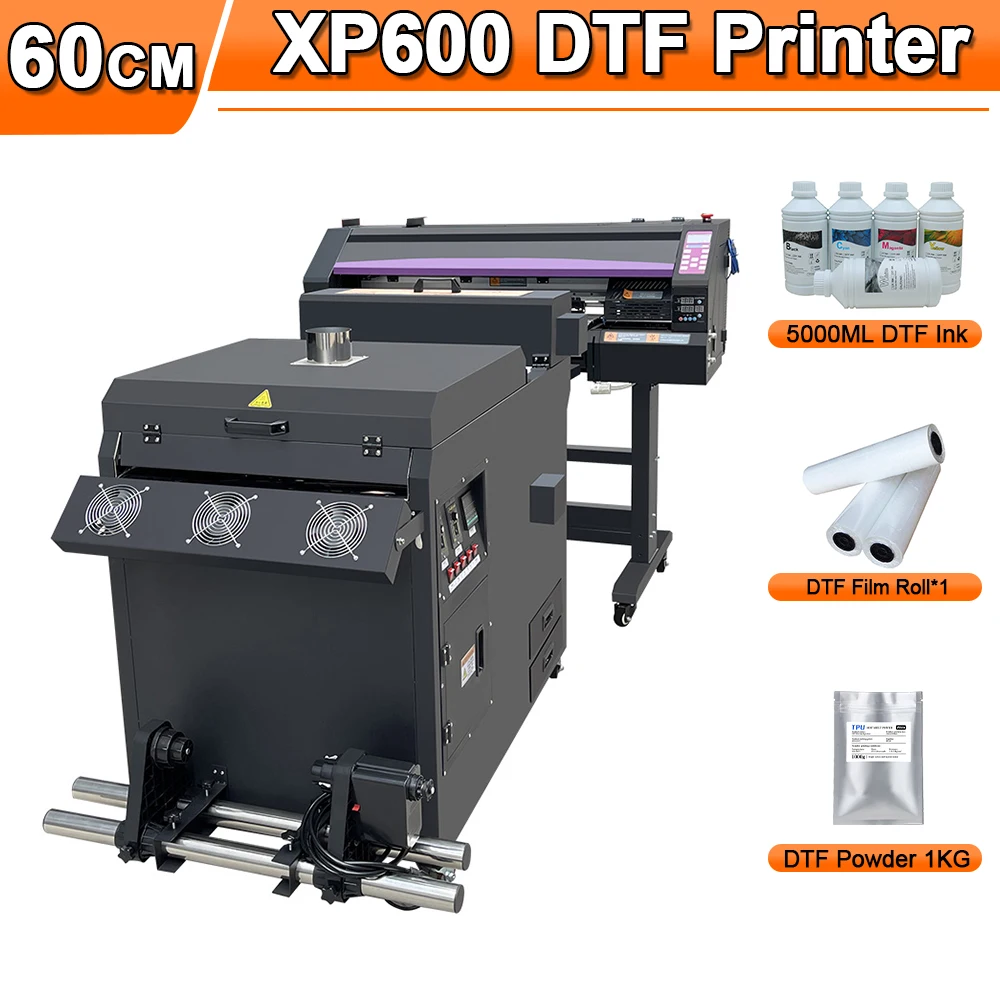
Revolutionizing Fabric Printing: The Magic of DTF Printers

In recent years, the world of fabric printing has undergone a remarkable transformation, driven by innovative technologies that are reshaping how we create and personalize textiles. Among these advancements, DTF printers have emerged as a game-changer, offering unparalleled quality and versatility for both businesses and individual creators alike. As the demand for unique and custom designs continues to rise, understanding the potential of DTF printers becomes essential for anyone looking to make their mark in the fabric printing industry.
DTF, or Direct to Film printing, has captured the attention of designers and entrepreneurs for good reason. This cutting-edge printing method allows for vibrant colors and intricate details to be easily transferred onto various fabrics, making it an ideal choice for custom apparel, home decor, and promotional items. The ease of use and efficient production capabilities of imprimante DTF are revolutionizing the way we approach fabric printing, making it accessible to artists and small businesses while pushing the boundaries of creativity in textile design.
What is DTF Printing?
DTF printing, or Direct to Film printing, is an innovative technique that allows for high-quality fabric printing. This method involves printing designs onto a special film before transferring them onto the fabric. The process utilizes eco-solvent inks which produce vibrant colors and intricate details, making it suitable for a wide range of materials, including cotton, polyester, and blends.
The DTF process starts by printing the desired design onto a transfer film using an imprimante DTF. Afterward, a hot melt powder is applied to the printed design. This powder adheres to the ink, and the film is then cured using heat. Once the curing process is complete, the film is ready for transfer, ensuring that the print is durable and resistant to washing and wear.
One of the significant benefits of DTF printing is its versatility. This method can produce high-quality prints in small batches or large runs, catering to both custom orders and mass production. Additionally, DTF printing requires minimal setup time compared to traditional printing methods, making it an efficient choice for businesses looking to optimize their fabric printing processes.
Advantages of DTF Printers
DTF printers offer a versatile solution for fabric printing that appeals to both small and large scale operations. One major advantage is their ability to print on a wide range of materials without compromising on quality. Unlike traditional methods, DTF printing can easily adapt to different fabrics, including cotton, polyester, and blends, making it ideal for custom orders and diverse projects. This flexibility opens up new business opportunities for apparel manufacturers and independent designers alike.
Another significant benefit of using DTF printers is their efficiency. The printing process is relatively fast compared to other fabric printing techniques, which allows for quicker turnaround times. This is particularly beneficial for businesses that require rapid production, such as those responding to seasonal demands or special events. Additionally, the reduced setup time and minimal waste make DTF printing not only cost-effective but also environmentally friendly.
Finally, DTF printers produce vibrant and durable prints that stand out in the market. The technology ensures that colors are rich and true to the original design, while also providing excellent washability and resistance to fading over time. This durability is crucial for products that will undergo repeated washing and wear, as it maintains the integrity of the design. Thus, DTF printers not only satisfy aesthetic needs but also uphold quality standards, making them a preferred choice for fabric printing.
Applications in the Fabric Industry
DTF printers have transformed the fabric industry by providing a versatile and efficient method of printing designs on textiles. From fashion apparel to home decor, the applications are vast. Fashion designers utilize DTF printing to create custom designs on garments, allowing for unique pieces that stand out in a crowded market. With the ability to print intricate patterns and vibrant colors, DTF technology enables designers to experiment without the limits of traditional printing methods.
Another significant application of DTF printers is in promotional products. Businesses often require branded apparel for events, uniforms, or merchandise. DTF printers allow for quick production of high-quality prints on various fabric types, ensuring that companies can meet their promotional needs effectively. imprimante dtf This flexibility caters to small runs as well as larger orders, making it ideal for businesses of all sizes looking to enhance their branding through customized fabrics.
In the realm of home textiles, DTF printing is gaining traction for producing customized curtains, cushions, and wall art. Homeowners and interior designers can commission unique designs that fit specific aesthetic preferences. The durability and washability of DTF prints make them especially appealing for fabrics used in everyday household items, combining creativity with practicality. This adaptability highlights how DTF printers are revolutionizing the fabric industry, opening up new avenues for creativity and customization.